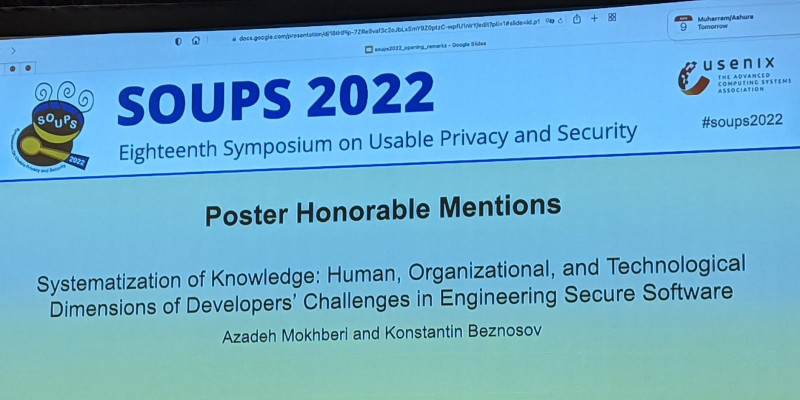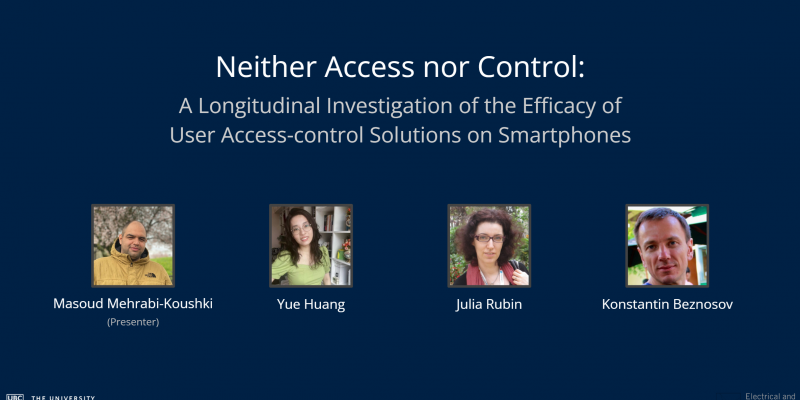Laboratory for Education and Research in Secure Systems Engineering (LERSSE) is a research and educational laboratory in the Faculty of Applied Science and housed within the
Department of Electrical and Computer Engineering, the
University of British Columbia, Vancouver. LERSSE is devoted to the research and training in all technical aspects of engineering secure systems. Research
projects at LERSSE span a wide range of topics from network security, to enterprise security architectures, to engineering secure software, to the usability aspects of security mechanisms, and to the critical infrastructure interdependencies.
LERSSE members seek to foster cooperation between academia, industry, and government in the research and development of new methods, techniques, and tools for the construction, administration, and operation of practical and usable secure information and communication systems. Through courses,
projects, research, workshops, and seminars, we train
undergraduate and graduate students in security engineering. This experience gives them early exposure to a wide range of practices in security assurance, secure system design, and secure software development.









